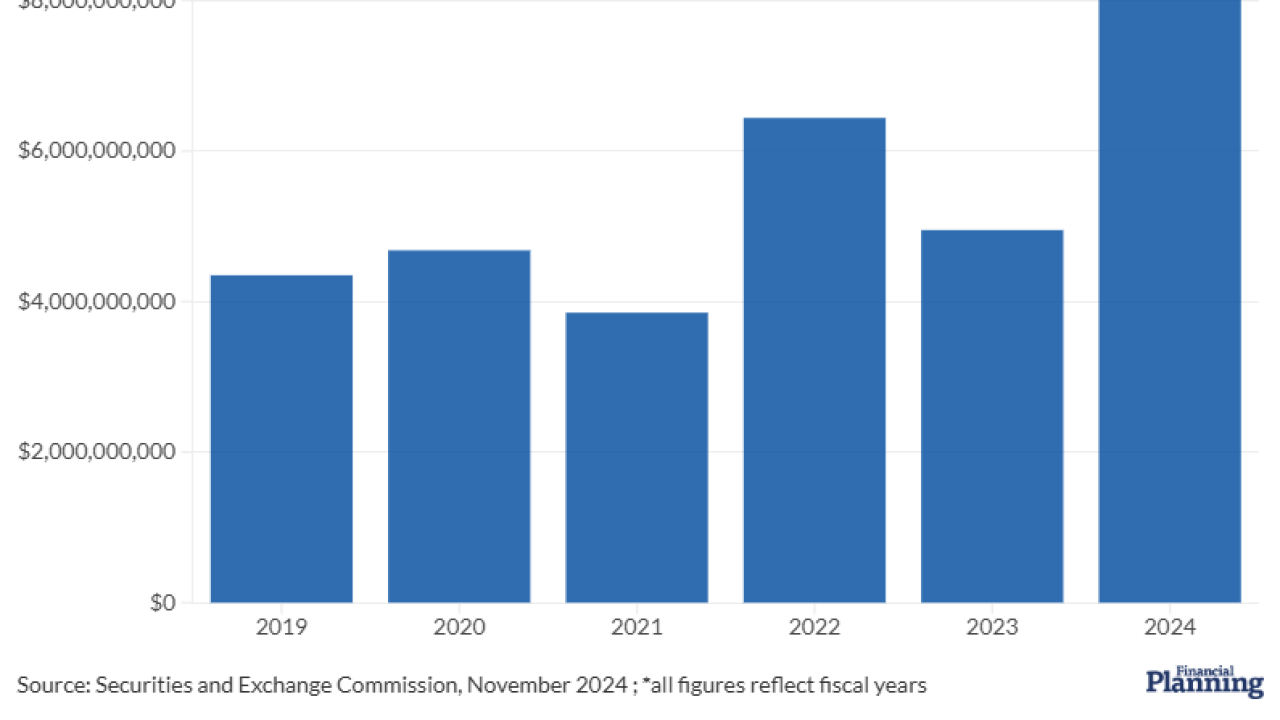GAM Holding’s shares fell a record 31% after the firm signaled it’s struggling to contain outflows prompted by a scandal over a star money manager and forecast a record loss.
The Swiss investment company said it will post a shortfall of $931 million for the year after massive outflows forced it to write down the value of its business. The loss erases eight years of earnings since GAM went public. With assets and fees lower for the foreseeable future, the group is cutting 10% of jobs.
Interim CEO David Jacob is seeking to move beyond the tumult created by the suspension of bond manager Tim Haywood in July and reverse the downward spiral of bad news and client outflows. GAM held informal talks with potential buyers with a view to stabilizing the business, people familiar with the discussions have said, though the CEO now says he’s focused on cleaning house.
“Today is about facing our financial reality so that we can move on and build a future for this business,” Jacob said on a conference call. “We are absolutely focused on the structure of this business, looking internally, and making sure this business is positioned for growth in future.”
Haywood was suspended in July after the company said he breached certain internal rules, prompting the first wave of outflows and a tumbling share price.

GAM was down 25%, bringing declines this year to 77%. The firm said it will probably suspend its dividend for 2018 to help rebuild capital. The full-year loss is mainly related to a series of goodwill charges at the group and its Cantab quant funds, GAM said.
“It is almost unnerving how GAM is once again able to outdo itself with negative reports this year,” said Michael Kunz, an analyst at Zuercher Kantonalbank in Zurich. “There is still no reason to touch this share.”
-
The firm has parted ways with its CEO Alex Friedman and launched a restructuring plan.
November 26 -
The development of new products, technology and the increasing prominence of ESG are top-of-mind among industry executives.
December 11 -
The firm anticipates the change will save its 1.5 million Admiral Shares clients roughly $71 million.
December 12
“It’s very difficult to predict flows,” Jacob said. “October and November were particularly bad months for the industry in general, with added difficulty for European asset managers.”
The suspension came as GAM was being buffeted by difficulties in the asset management industry. Volatile returns and an investor flight to low-fee products have squeezed profits, forcing many money managers to consolidate. Assets declined by about $18 billion in the third quarter as Haywood’s funds were liquidated and clients pulled money from other strategies.
Even worse, those at the bottom of the pack averaged higher expense ratios.
Before the profit warning, GAM had gotten a rare sign of investor support when Mario Gabelli, the 76-year-old head of Gamco Investors, last month disclosed that he owned a stake of around 3% in GAM. Gabelli has gained renown on Wall Street through a combination of savvy stock-picking and self-promotion, looking for undervalued companies with a catalyst such as a takeover or management changes that may unlock gains.
Much of the writedown behind GAM’s loss was tied to goodwill that dates back to Julius Baer’s purchase of the asset manager from UBS in 2005. When Baer split off GAM in an initial public offering in late 2009, the latter kept the goodwill — the intangible value of a company’s brand, its customers and employees — on its books.
By writing down the value of the business, Jacob is acknowledging that outflows in the past months will impact earnings into the future. GAM said Thursday that next year’s financial results will be “materially” below this year’s because of the lower asset base and the cost reduction program.






